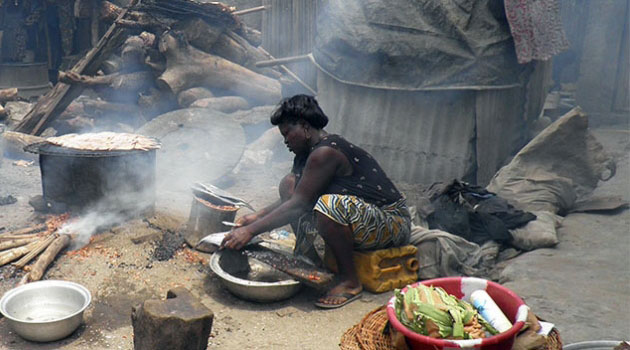
The Household Care Survey 2019 finds that women spend 11.1 hours per day on any care compared to men’s 2.9 hours per day/FILE
NAIROBI, Kenya, Feb 13 – A heavy and unequal responsibility of unpaid care and domestic work is borne by women and girls in Kenya, a study by Oxfam Kenya has found.
The Household Care Survey 2019 finds that women spend 11.1 hours per day on any care compared to men’s 2.9 hours per day.
“Women leaving in informal settlements worked for many hours as they spend much time in caring for children, the elderly and the sick, and on cooking, cleaning and household tasks in informal settlements,” reads the report.
Further, over half of women have suffered from health risks including injury, illness or disability due to performing heavy tasks.
However, women who owned fuel and washing-related equipment spent about 2.3 hours less on any care, while those with access to improved water resources and healthcare facilities spent from 4 to 5 hours less per day.
The Survey was carried out in five informal settlements namely Kibera, Mathare, Mukuru, Kawangware and Korogocho.
The report also finds that a high percentage of men who are spending most of their time in white-collar jobs or informal sector occupations were not taught how to engage in unpaid and domestic work.
“Men were more likely to have been taught how to perform under the care and domestic tasks than to have observed the actual performance of these tasks by other men during their upbringing,” the report further highlights.
Out of the 48 men that were consulted during the survey, 71percent of them said they have never seen any other man wash clothes, 62 percent have never seen another man clean the house, 45 percent have at no point perceived any man prepare meals while 38 percent of them have never witnessed another man take care of siblings.
Some of the women in these informal settlement areas have come across men who have received a backlash if seen engaging in-home activities, traditionally believed to be women’s responsibility.
“44 percent of women affirmed having known of a man who had been mocked for performing house chores,” the findings show.
However, 71 percent of women in the community agree that it was okay to involve the opposite sex in unpaid activities despite 50percent of the men reluctant to help in house activities.
They would only agree to offer an extra hand in selected tasks such as caring for children, and water collection which would only take 35 and 24percent of their time respectively.
This could suggest that men evaluate the perceived social acceptability of males performing the task in question when deciding whether to help their partners with it.




































